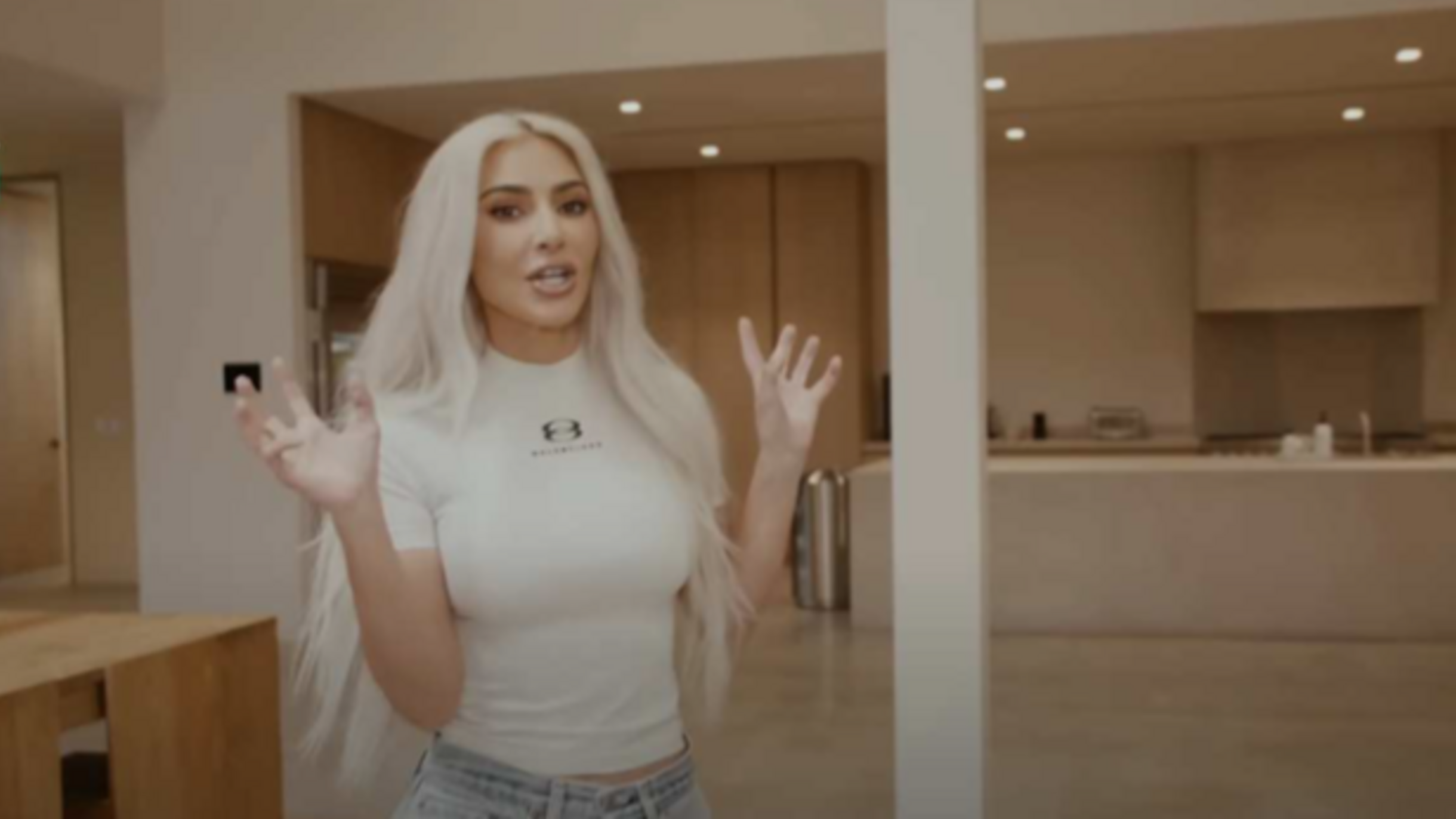The design firm caught up in Kim Kardashian’s Donald Judd knockoff scandal is firing back. Last week Clements Design—composed of the mother-son team of Kathleen and Tommy Clements—filed a motion asking the judge overseeing the case to dismiss it from court before a trial. The 28-page document accuses the Judd Foundation of suing for publicity and attempting to “stifle competition in the market, prevent other designers from creating their own wooden tables and claim minimalism as its own.”
Here’s how we got here. Back in March, the Judd Foundation hit Kardashian and the Clements with a lawsuit, claiming that the AD100 firm had produced unauthorized copies of the artist’s La Mansana table and Chair 84 for the offices of Kardashian’s company, Skkn by Kim—and that in a video about the office’s design, the celebrity claimed the pieces were authentic. The lawsuit detailed a back-and-forth, starting in 2022, when the video was posted on YouTube.
The motion lays out the Clements’ side of the story. In it, the firm acknowledges producing the pieces for Kardashian, but claims that they were never intended to be passed off as the real thing: “In describing the furniture to its client, Clements Design never described it as ‘authentic.’ Donald Judd furniture,” the document reads. “On the contrary, Clements Design described the furniture as ‘in the style of Donald Judd’ which means the furniture was not actually Donald Judd furniture but was only designed in the same minimalist style.”
Much of the motion is dedicated to poking holes in the Judd Foundation’s legal claims. The original suit hinges on allegations of trademark and “trade dress” (the visual appearance of a product that signifies its origin to customers, like the shape of a Coca-Cola bottle, for example) infringement, false advertising and unfair competition, all of which the firm seeks to refute. For example, the Judd Foundation’s attorneys used a copy of the Clements’ design proposal for the project, which included copyrighted photos of Judd’s La Mansana table and Chair 84. The Clements’ rebuttal argues that since the proposal was distributed privately on a single occasion, that there is no case for the claim of false advertising.
As for the trade dress claim, the motion suggests that the original suit is broadly describing the minimalist aesthetic, not Judd’s work specifically. “Judd Foundation essentially seeks monopoly protection for what are generic minimalist design features,” it states.
Clements Design did not return to a request for comment. The Judd Foundation’s attorney provided a statement to Business of Home, which restates the organization’s original claims.
“Clements Design admits that it sold knockoff Donald Judd furniture and marketed that furniture using the Donald Judd trademark and a copyrighted photograph belonging to Judd Foundation, but contends that since it allegedly only did these things once, it is above the law and should not be held liable,” writes Megan K. Bannigan of Debevoise & Plimpton LLP. “The precedent Clements Design attempts to set would give all trademark infringers a get-out-of-jail-free card, so long as they infringe in only limited quantities. That is not the law. We are confident in our legal claims.”
Though the motion sheds some light on the Clements’ thinking, the story behind Kardashian’s comments in the video (“If you guys are furniture people, and I’ve gotten really into furniture lately, these Donald Judd tables are amazing,” she says, gesturing to the pieces in question) are somewhat murky. The celebrity—who is also named in the Judd Foundation’s lawsuit—has not filed a similar document in court. The judge overseeing the case, Maame Ewusi-Mensah Frimpong, plans to revisit the motion in October.





























